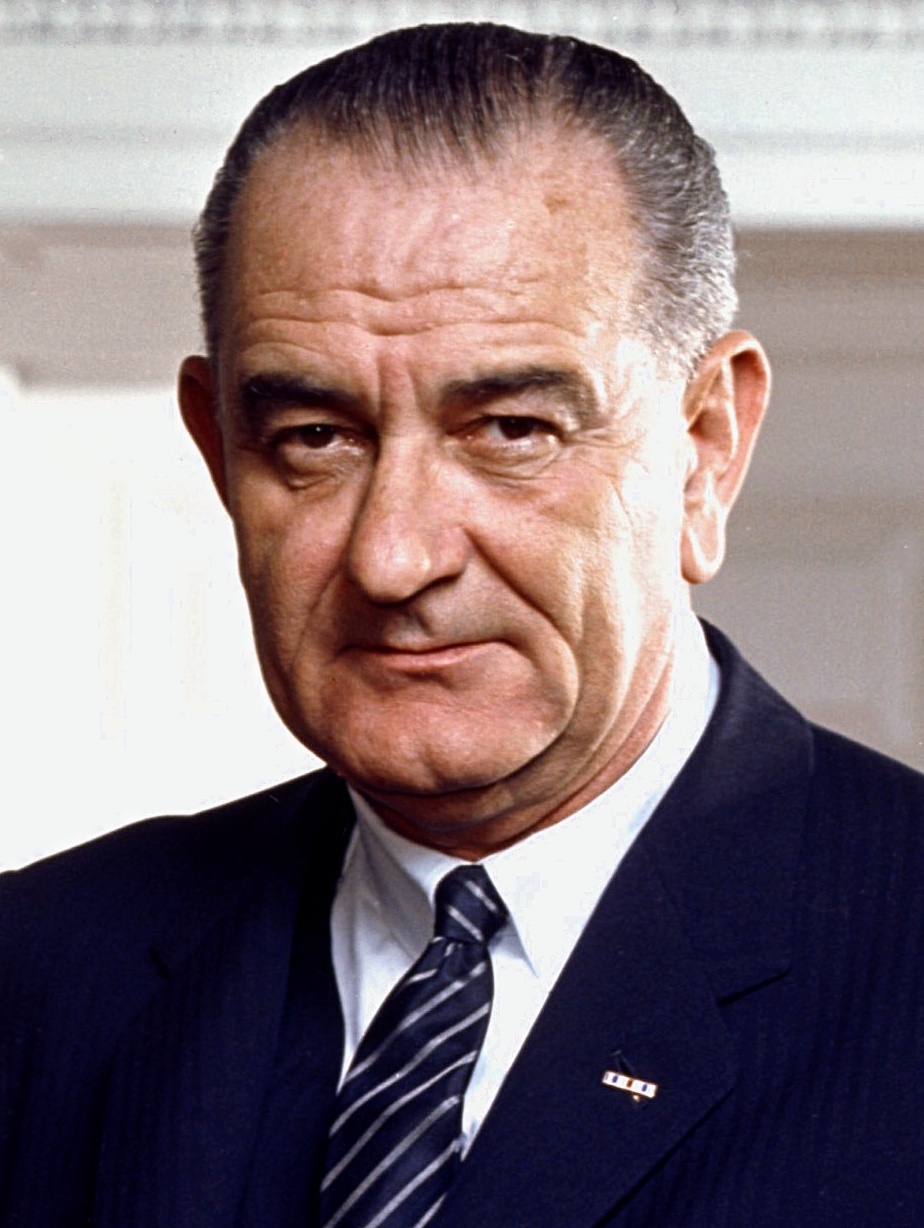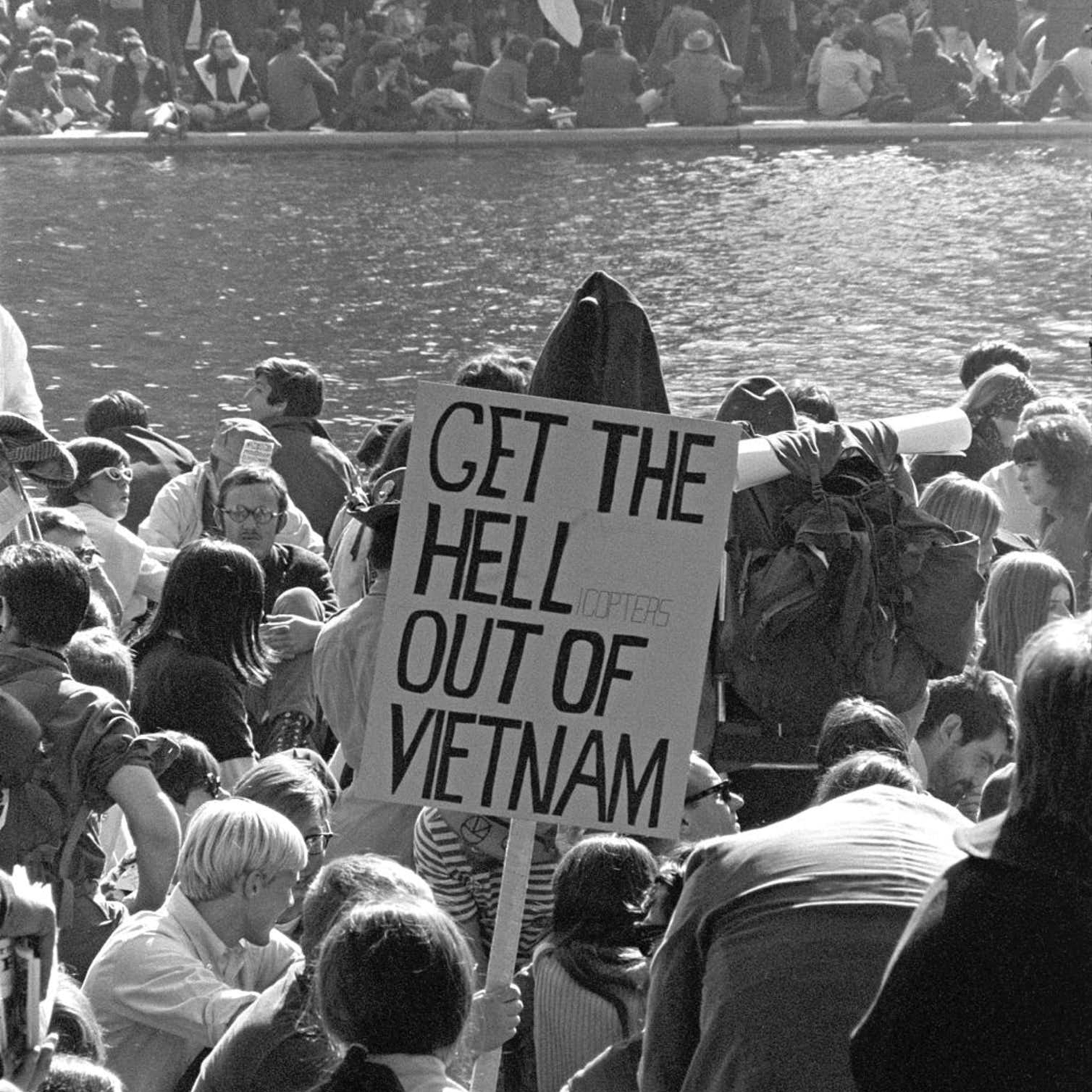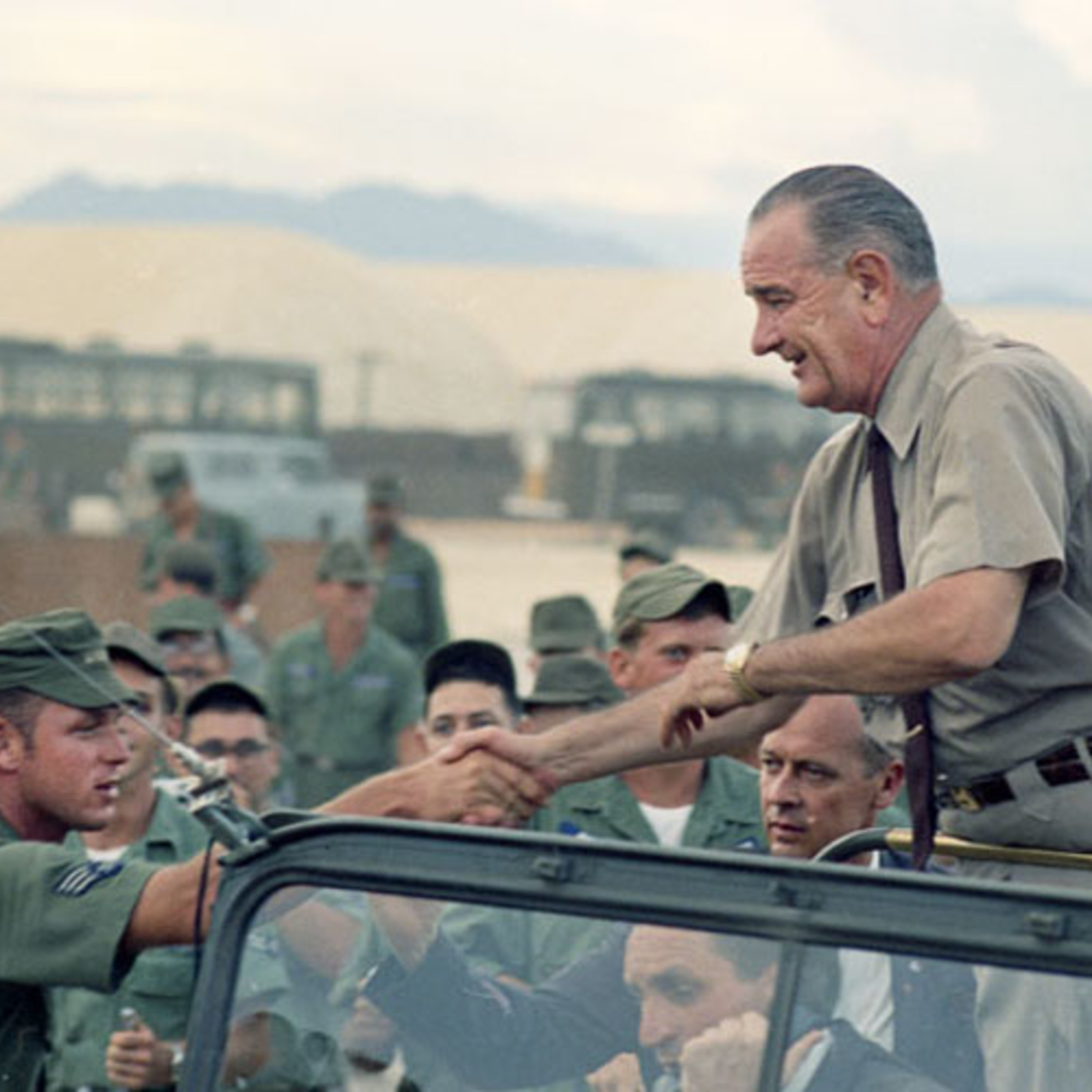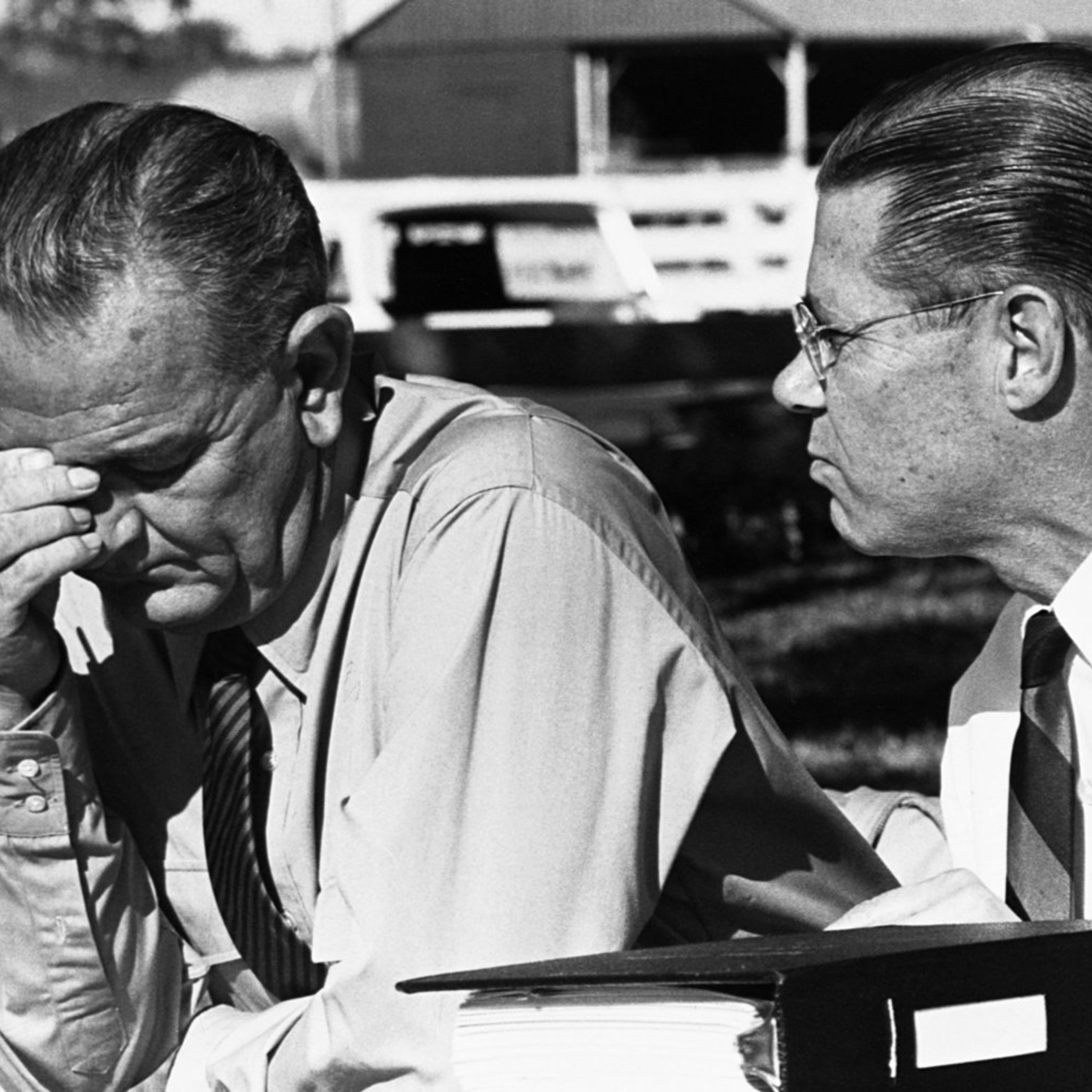Lyndon B. Johnson: Collapse
Much of the weight of the U.S.'s failures in Vietnam is placed, by both historians and citizens alike, on the shoulders of President Johnson. Lyndon B. Johnson is no doubt a complicated figure, and his actions certainly hurt the U.S.’s prospects in Vietnam. Jared Cohen writes that in part because of Johnson’s naivety in foreign affairs and also in part because of Johnson’s own stubbornness, he fatally, “refused to pull the chord on Vietnam” (Cohen 349). Under Johnson, the U.S. saw its physical involvement in Vietnam increase more so than under any other president. In 1965, the first U.S. marines landed in Vietnam. By the end of 1965, there were 189,000 U.S. troops in Vietnam: that number would rise above 500,000 by the end of 1967 (Cohen). For Johnson, the decision to escalate in Vietnam was difficult-to-swallow but necessary. Johnson’s legacy was everything to him, Kent Germany writes, and Johnson did not want “to be remembered as a President who lost Southeast Asia to communism” (Germany, Miller Center).
While history generally looks to Johnson as the goose of the Vietnam War, it is important to remember the situation that he inherited from his predecessors. Kennedy before him took large strides in the direction of eventual armed conflict, slowly escalating the resources the U.S. invested in Vietnam. Johnson’s mindset was whole-heartedly influenced by Truman’s containment policy and domino theory, as Johnson and his team were convinced that Vietnam’s collapse to communism would serve to begin a disastrous momentum swing for communism regionally and globally (Germany, Miller Center).
Very quickly, Johnson saw himself face to face with, as Jared Cohen sharply writes, “a war we couldn’t win and a war we couldn’t afford to lose” (Cohen 349). It is important that we not view Vietnam as a sudden and disastrous affair mounted on Johnson’s presidency, but instead as a slow melt, one that Johnson was a part of in a much greater and problematic series of events and choices. Yes, Johnson made many costly decisions in Vietnam during his presidency. An intriguing question to ask is, would anybody in his position have acted differently? It is impossible to know, but certainly interesting to ponder.
Digital Media/Primary Sources
During Johnson's presidency, Vietnam grew to the public and visual disaster that it was destined to become. The two links below portray the tension LBJ felt about the situation in Vietnam; the first link is a video of a 1965 press conference in which LBJ forecasts the U.S. physical combat role in Vietnam, while the second link portrays the private turmoil LBJ was in over the seemingly unwinnable Vietnam dilemma the U.S. found itself in during his presidency.
LBJ Press Conference Announcing Escalation in U.S. Combat in Vietnam, 1965
LBJ's Private Apprehension Towards the Situation with in Vietnam with Some Commentary




